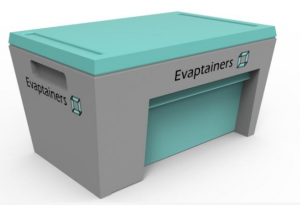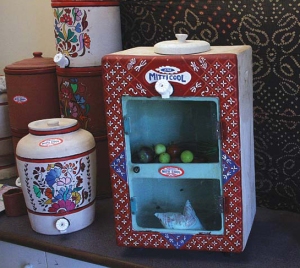When it comes to innovation, we think about something high-tech and expensive. Food social innovation, show us that is possible to innovate, have fair price, be accessible and yet profitable and sustainable.
In Africa many children travel long distances on foot to school. And many of them do not have electricity at home, preventing them from studying in the evening. To solve both problems at once, a group of South African women created backpacks Repurpose. Indicated for children carry their school supplies, backpacks are made from recycled plastic bags and have a solar plate that loads during the day and ensures light at night. Donate here for the kids.

Another great example is the Algramo, Chilean company that operates with food to bulk vending machines. The consumer pays for packing only once and can fill it up again whenever you want, paying cheaper and saving disposal of packaging on the environment. As the products go straight from the producer to the consumer the final price is up to 40% cheaper than in supermarkets, accessible to underserved populations.
Also targeting developing countries, an MIT student created the Evaptainer, which looks like a cooler, but it’s a fridge. It works with solar energy and water in an evaporative cooling process. In some locals in Africa 40% of food production is lost before even reaching the consumer and especially small farmers are the most affected because they do not have electricity and refrigerators to preserve food. In the intermediate layer, aluminum plates and a special wet tissue is used to keep the interior cool as water evaporates. 6 liters of water are sufficient to maintain up to 150 fresh tomatoes for 12 hours. The forecast is that the cost will range from 10 to 20 dollars per unit and the pilot programme is taking place in Morocco.

The rudimentary version of the Evaptainer, is made of clay and is quite attractive in India. Mitti Cool works with the same principle, democratizing the access to the lower layers of the population. This once again proves that you don’t always need high technology and exorbitant prices, solution often is right next to us, even in our kitchens. Do you know good examples of social innovation? Tell us!

References: Planeta Sustentável, Digital Trends, Noctula Channel






















